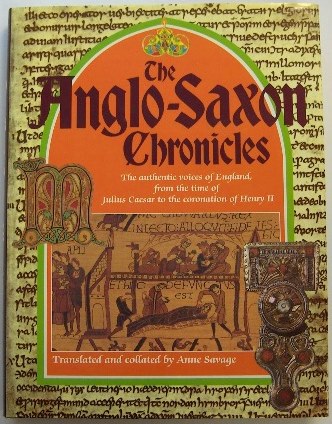The Germanic forefathers of the English brought with them their own poetry but there is no evidence of them bringing any prose writings. The development of English prose wholly took place in England and was greatly facilitated by the introduction of Christianity. The early prose was utilitarian and we find its first traces in the collection of Laws such as the Laws of Ine and the opening pages of the chronicle which were kept in various monasteries such as Canterbury, Abingdon, Winchester, Worchester and Peterborough. The prose that we find in these earliest writings does not have a proper form. Literary prose started developing from the 9th century under King Alfred who attempted to revive learning in his kingdom and it later flourished under prolific Anglo-Saxon writers such as Aelfric and Wulfstan.
Alfred has been called the “Father of English prose” and with good reasons. The birth and development of the English literary prose owes much to Alfred who was determined to re-build a flourishing civilization after destructive Danish intrusions and bring within the range of his people the most significant of Christian thoughts. Alfred greatly advocated the use of vernacular and he established the mother tongue rather than Latin as the Lingua-Franca in schools through his writings. He gave learning a fresh impetus by bringing forth a string of translations like that of Orosious’ “History of the World”, Bede’s “Ecclesiastical History”, Pope Gregory’s “Pasteural Care” and the soliloquies of St. Augustine. His other very important work is the Handbook which contains extracts from the Bible. Alfred’s sole aim was to instruct his people and while translating and he did not hesitate to curtail his authors when their discourses were useless or too long. He even added passages of moving beauty as inclusions and illustrations which established his credibility as a prose writer.
By far, the most important work of King Alfred is the Anglo-Saxon chronicle which was not composed by him but under his influence and orders starter being maintained as a regularly collected history of Britain. When the dry chronicle touches his reign it becomes an interesting and connected story which is studded with a few passages of real artistic beauty, some of which are believed to be dictated by the King himself. This precious monument of English Literature has some beautiful poems like Battle of Maldon and the Battle of Brunanburh. From the historic point of view, the Anglo-Saxon Chronicle is important as the oldest history belonging to any modern nation and from the literary point of view it is held in high esteem as the first great book of English prose.
Aelfric has been called the greatest English prose writer till the Elizabethan time. He was a scholarly, cultured and a good Latinist who wrote a lighter and a more musical kind of prose. His style, a great advance upon that of King Alfred’s is lucid, straight-forward, alliterative and poetic in cadence. Among his works, the most important are the Catholic Homilies. He also translated certain parts of the Bible which strengthened his claim as a skilful prose writer. The remarkable quality of his works proves that English prose was attaining a superior quality of excellence before its advance was checked by the Norman Conquest.
Wulfstan, the chief literary contemporary of Aelfric is best known as a homilist and his fame rests upon a single homily – “Sermo Lupi”. His style is much more forceful than Aelfric’s and he spoke with prophetic eloquence and zeal. He is fertile in concrete illustrations and wrote in long alliterative sentences which were hyped with synonyms and clauses, making him a good rhetorician.
Although much of Old English prose consists of translations from Latin and are influenced by the originals, it would be very incorrect to assume that the period was lacking in original ideas and personal qualities. The homilies of Aelfric and Wulfstan are at the beginning of the true line of development to the prose of the Authorized Version and the beginning of historical writings is to be seen in the Anglo-Saxon Chronicle.
Some online learning platforms provide certifications, while others are designed to simply grow your skills in your personal and professional life. Including Masterclass and Coursera, here are our recommendations for the best online learning platforms you can sign up for today.
The 7 Best Online Learning Platforms of 2022
- Best Overall: Coursera
- Best for Niche Topics: Udemy
- Best for Creative Fields: Skillshare
- Best for Celebrity Lessons: MasterClass
- Best for STEM: EdX
- Best for Career Building: Udacity
- Best for Data Learning: Pluralsight








plz add conclusion…
awesome
Wow, great …..
Wow, great …..excellent note. . I m fully amazed by the article. ……
Beowulf as an epic. …?
It’s too good…but plzz help me to make it an eye capturing answer….
Mam would u plzz give contribution of Aelfric…??
How simple & lucid explanation I have had!
great but plz add conclusion..
not bad ,it is good for concept clear of understanding about Anglo Saxon prose,.
perfect note